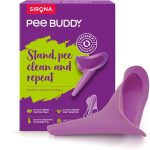Potential Benefits of Delta 8 Flower and Hemp Oil on Hair
Self-care and the beauty business are inextricably linked because of the importance people place on hair care. Hair is now a sign of self-confidence, and it tells a lot about a person’s demeanor. Haircare products have seen a considerable increase in demand as a result of this new type of judgmental social etiquette. Hair nutrition is aided by a number of compounds, including essential oils and delta 8 flower, according to a few studies. Hemp Aromatherapy is a common method.
In recent years, hemp aromatherapy has become a new sector in the market. Hemp seed oil is combined with a variety of plant leaf extracts to provide a potent remedy for a variety of diseases.
Distillation and evaporation are the most common methods for obtaining essential oils from plants. Essential oils are well-known for their fragrant qualities, but they also have chemical characteristics that are critical to human health and wellness. Because of their efficacy and decisive effects, essential oils have long been used as a supplement to Eastern and homoeopathic medicines.
Hemp seed oil is what?
Cannabis sativa is the species of plant that produces hemp. However, this plant is not the same kind of Cannabis Sativa that is often known as marijuana.
Cold-pressing hemp seeds yields a pale green oil known as hemp seed oil. In contrast to cannabidiol (CBD), which is derived from hemp flowers and leaves, this is a synthetic compound.
It’s not uncommon for D8 flower oil to be free of THC, the cannabinoid that gives marijuana users a euphoric high.
Hair is reported to be protected from damage by hemp seed oil, one of its numerous health advantages. Find out more by reading on.
Difference between hemp seed oil and hemp oil
You need to know the difference between hemp oil and hemp seed oil before you can get started. Cannabis is the source of both, although hemp is a byproduct of the stalk and leaves of the plant. Hemp seed oil, on the other hand, is extracted through cold pressing from the seeds, just like other carrier oils such as jojoba and sunflower seed. Unlike hemp seed oil, hemp oil contains cannabinoids such as THC, CBN, and CBD; hemp seed oil does not contain them.
Antioxidants and omega-3 and omega-6 fatty acids, on the other hand, have made hemp seed oil a skin-care mainstay for decades. The moisturizing and non-comedogenic benefits of this product are widely recognized, and as your scalp is skin, this bodes well for your hair’s health.
Hemp seed oil’s potential hair benefits
Hemp seed oil for hair is a topic that has received little clinical attention. Hemp seed oil proponents argue that studies on the effects of other, comparable oils on hair may also apply to this one.
According to a study published in 2015, some oils, such as coconut oil, can help protect hair from damage in several ways.
- preventing hair from absorbing an excessive amount of water
- decreasing the likelihood of certain chemicals reaching the hair follicles by blocking their entry
- Increasing the shaft’s lubrication can help to reduce hair breakage.
- reduce the combining power on damp hair to avoid hair damage
Hemp flower seed oil, according to some, may be included in this category.
There is enough evidence to back up the statements made in this article. To get a clear picture, one must look at the available scientific evidence. It’s reasonable to compare hemp seed oil to other hair oils that have been shown to be effective time and time again. Many of the benefits of these oils for the hair include reducing excessive water absorption, protecting against foreign particles entering the hair follicles, lubricating the shafts of the hair to reduce hair fall, and more. All of these advantages are made possible by hemp seed oil.
When coupled with antioxidants, omega-3 and omega-6 fatty acids are thought to be advantageous for hair development and health. Like delta 8 flowers, they’re both in short supply in Hemp seed oil, which has a 3:1 ratio between the two. Antioxidants including Vitamin E, carotene, phytosterols, phospholipids, and chlorophyll are also found in this supplement. Zinc and iron are necessary to bring out the best in these ingredients. Minerals such as calcium, magnesium, sulphur, potassium, and phosphorous are included in the frosting on the cake. With the help of these substances, we infer that the oil would nourish and hydrate hair, encourage hair development, and strengthen hair roots.
Based on anecdotal data and studies on the same type of fats that appear to be advantageous for hair, some conclusions may be drawn.

